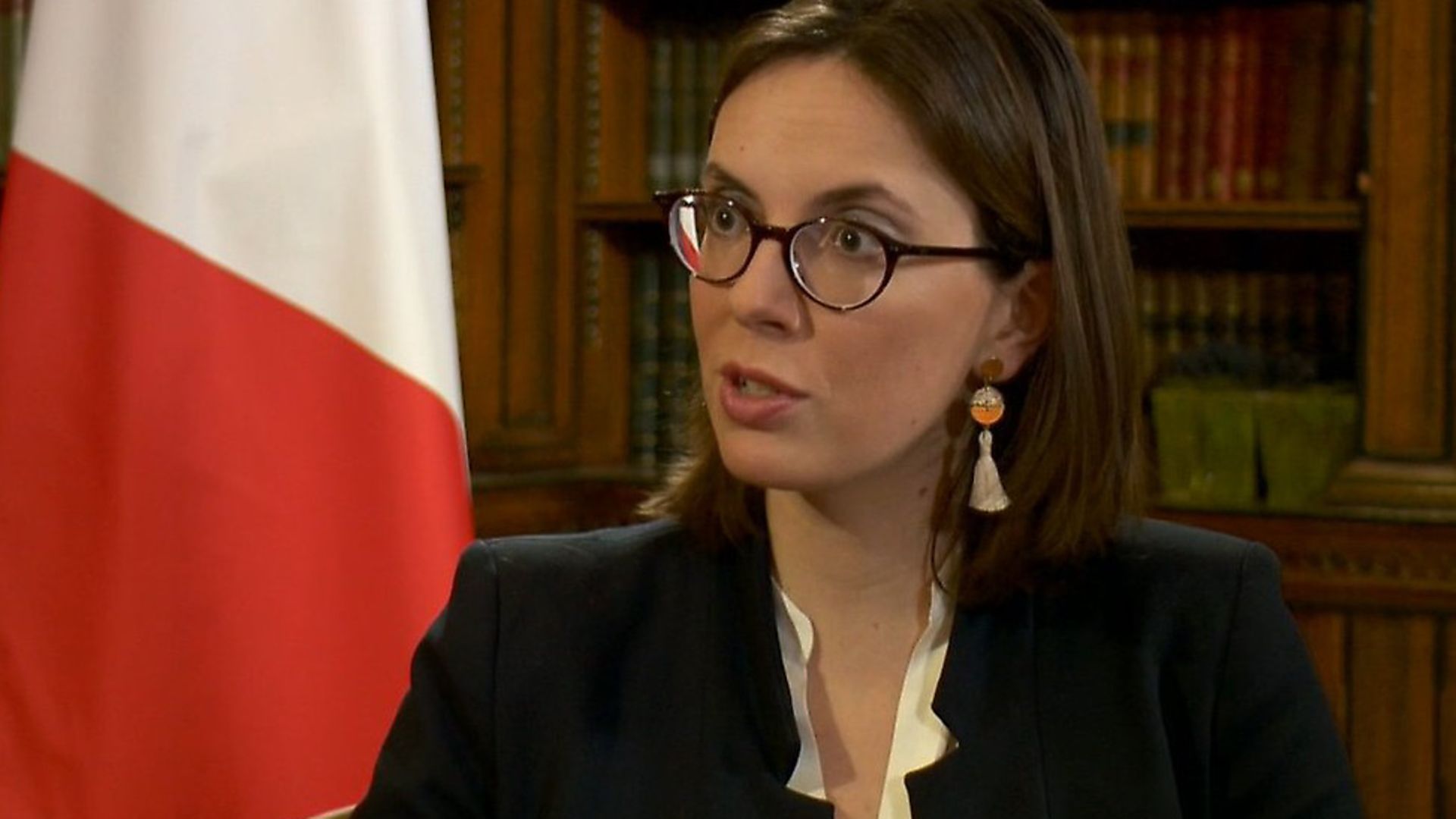
France’s secretary of state for European affairs has spoken about the negotiations process between the UK and the EU as tensions seemed to arise after declarations by Boris Johnson and the French foreign minister Jean-Yves Le Drian.
In her first televised interview in English, Amélie de Montchalin told Andrew Marr on BBC One that she grew up in Calais, shortly after the opening at the tunnel and drew some lessons from that regarding Brexit.
“At that time, we had one million trucks going from Calais to Dover and from Dover to Calais every year. Nowadays it’s five million trucks. So it means that we cannot know for sure who has the most to lose, we all lose.”
Boris Johnson announced he will walk out of the Brexit negotiations halfway through if they have not advanced properly by June, but Montchalin told Marr that Europeans want a good, fair, and long-lasting deal.
She said: “What matters is the content, the substance of the deal. We will not sign for the sake of having a deal.
“This is very serious. This is a moment when we need economic rationality. It’s not that if the British lose, French or Europeans will win.
“At the end, we need to protect our citizens, we need to protect our businesses, we need as politicians to be able to look at the people who voted for us in the eyes, and say very calmly, ‘we protected you, we protected your interests, your way of living’ and move forward.”
Montchalin also explained what France’s foreign minister meant when he said the UK and EU would ‘rip each other apart’ during the negotiations.
“I think what he meant is that there are many issues to be discussed. Take the fishermen, take the farmers, people want us to be in a battle mode and I think this is not the way it should be.
“If we go and rip each other apart, we will all lose.”
She also highlighted a new ‘phase of Brexit’, where instead of politicians speaking to politicians, there should be more emphasis on the citizens.
“We have known a lot of drama, a lot of passion, a lot of emotion, because politicians were speaking to politicians
“I think now we are entering the real people negotiation, the one for business, for farmers, for fishermen, for companies, for the real issues that concern people on both sides of the Channel, be them European or British.”
Boris Johnson wants a zero-tariffs, zero-quotas agreement, and Montchalin says the EU is ready to offer it on the basis of fair competition and upon linking all four topics in negotiations: free trade agreement, conditions of competition, governance of the whole deal and fishing.
“We cannot agree on any subject if we cannot agree on all four points. There is time to reach an agreement on all the issues if we are consistent and go above the politics of symbols,” the French secretary of state said.
“We are interdependent, we can choose a route with no access for [European] fishermen to waters, and then no access to fish by UK fishermen, I am not sure this is a rational way to go. I trust out capacity to see that we are interlinked and to work to protect on both sides of the Channel our businesses and our people.”
Montchalin stressed multiple times that the UK was, is and will be sovereign, and that Europeans respect that, but suggested the issue of fishing is delicate because “people invested their whole lives to buy a boat, create a full industry, transport, freeze and export fish” and now they will be faced with limitations “for a reason they didn’t choose.”
“You are totally sovereign to vote the laws that you want in your country. We, on the European side, share competences because we feel we are stronger by doing things together. UK people decided differently, to do it themselves. It’s a totally free and possible choice. But when the goods and services get out of the borders, then we are concerned.”









